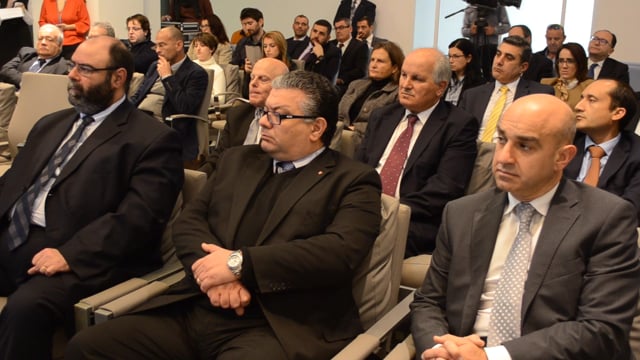[WATCH] Tourism law reform to tackle unlicensed accommodation, regulate gentlemen's clubs
Minister Edward Zammit Lewis said the reform would aim to tackle a number of areas in the sector, including licensing legislation for accommodation, catering operators and gentlemen's clubs



Tourism minister Edward Zammit Lewis has launched a public consultation on legal reform in the tourism sector, including the regulation of the rental of private accommodation and gentlemen's clubs, as well as the formation of an insolvency fund for customers of tour operators.
"The reform seeks to regulate the operation of the sector to have an altogether new legal framework and reduce bureaucracy, to accomodate the developments in the sector," Zammit Lewis said, adding that the reform was part of a strategic vision of tourism and its future.
"The aims include a reduction in bureaucracy, and updating the law and its subsidiary legislation by introducing more streamlining," he said, stressing the need to keep up with the changes in the sector."
He explained that the government would also be looking at unlicensed accomodation with the aim of regularising the sector as much as possible, as well as making it easier for the private sector to invest.
The draft also suggested the establishment of an insolvency fund, which is required by the EU, to start being developed in the coming weeks. The fund would safeguard the rights of consumers who book tours with operators that later declare bankruptcy.
"Consumers are essential to the whole reform as it seeks to give tourists a better product to enjoy," he said.
The minister said that the Tourism Act in Malta was launched in 1999, alongside the Malta Tourism Authority, and it had undergone various amendments as well as 17 legal notices to regulate the sector.
"The draft reform looks at various aspects including an act to regulate the constitution and work of the MTA, a legal notice to regulate the process and conditions of licensing to operators in the sector, different standards and guidelines for the tourism policy of different sectors licensed by the MTA and two legal notices regulating travel agents organising package travel and timeshares," he said.
Zammit Lewis said that he had launched a committee to address the needs of the sector. The committee was helmed by ministry consultant George Micallef and includes architect Kevin Fsadni, David Mifsud, Frank Farrugia and Frank Testa.
Micallef said that the reform would also allow the MTA to ensure that every operator is licensed and that they conform with obligations that are part of the conditions of licensing.
He explained that licensing will be divided into two: private rental and collective accommodation, which will include hotels, hostels, guesthouses, villages, serviced apartments or aparthotels, hotels in historic regions, boutique hotels, palazzini, heritage and agritourism accommodation. He added that in terms of private accomodation, B&B residences had been included.
Referring to catering establishments licensing, he said there would be a basic license with additional permits according to the needs of the business.
He added that late night clubs, including gentleman's clubs, would be awarded permits for operation on an annual basis. Micallef said the MTA was currently in discussions with operators to create a regulatory framework for the sector, which would comprise rules on health and safety, employment rights and environmental standards.
MTA CEO Paul Bugeja said that the authority was there to support the industry rather than provide obstacles. A campaign would be launched to inform operators about the changes and how they would be affected by them.
The consultation document will be available online.




.jpg)

















